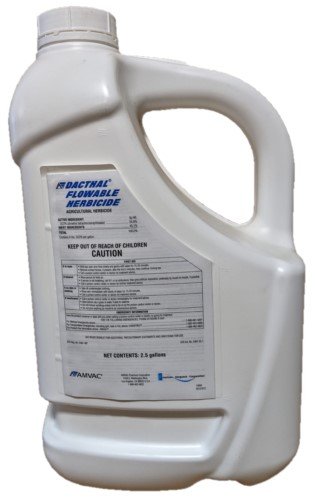U.S. EPA Issues Emergency Order to Stop Use of Pesticide Dacthal
U.S. EPA Emergency Order Suspends the Registrations of All Pesticide Products Containing Dimethyl Tetrachloroterephthalate (DCPA)
U.S. EPA - Dacthal
On August 6 2024, the U.S. Environmental Protection Agency announced the emergency suspension of all registrations of the pesticide dimethyl tetrachloroterephthalate (DCPA or Dacthal) under the Federal Insecticide, Fungicide and Rodenticide Act (FIFRA). Growers need to immediately stop using products such as Dacthal Flowable Herbicide, Dacthal W-75 Herbicide, and Technical Chlorthal Dimethyl.
The U.S. Environmental Protection Agency (EPA) has announced the suspension of all pesticide products containing Dimethyl Tetrachloroterephthalate (DCPA), commonly known as DACTHAL. You may have used this herbicide to prevent the germination and growth of weeds in Brassica and Allium crops. EPA made this decision based on findings that exposure to DCPA can cause irreversible harm to pregnant women, potentially leading to damage to the unborn child.
Products affected by this suspension include various herbicides used in agricultural settings; Dacthal Flowable Herbicide (EPA Reg. 5482 - 487), Dacthal W-75 Herbicide (EPA Reg. WI50002), Technical Chlorthal Dimethyl (EPA Reg. 5482-495). Please check your current herbicide inventory and storage unit to return the product to the sellers if you are unsure of handling. All practices involving the application of DACTHAL must be stopped immediately. For those needing assistance in finding alternative products, please reach out to UCCE for support.
Health Effects of DCPA
DCPA has been linked to several adverse health effects, including but not limited to:
Respiratory Issues: Prolonged or high-level exposure can cause respiratory problems, including coughing, wheezing and shortness of breath.
Skin and Eye Irritation: Direct contact with DCPA may lead to irritation of the skin and eyes, causing redness, itching and discomfort.
Birth Defect: Frequent contact could harm unborn babies by altering fetal thyroid levels, leading to low birth weight, impaired brain development, decreased IQ and impaired motor skills.
Potential Carcinogenicity: Recent studies have raised concerns about the long-term cancer risks associated with DCPA exposure, particularly in environments where it is used extensively.
Disposal Instructions
To ensure safe and responsible disposal of any existing DCPA products, please follow these guidelines:
Do Not Use: Cease any use of DCPA effective immediately. Do not apply or handle this substance further.
Contain and Store: Store any remaining DCPA in its original container, securely closed, and in a cool, dry place away from children and pets.
Contact Local Authorities or Hazardous Waste Vendor: Reach out to your local waste management authority or your hazardous waste vendor for information on designated drop-off locations or scheduled collection services for hazardous materials.
Follow Proper Disposal Procedures: Ensure that the disposal process adheres to all local, state and federal regulations concerning hazardous waste.


